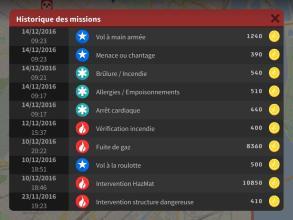
When You Call 911 for Tick Bites: A Comprehensive Guide
Tick bites can be a cause for concern, especially if you’re not sure how to handle the situation. If you find yourself in a situation where you need to call 911 for a tick bite, it’s important to be prepared and know what to expect. This article will provide you with a detailed, multi-dimensional introduction to what happens when you call 911 for tick bites.
Understanding Tick Bites

Before diving into the process of calling 911 for a tick bite, it’s crucial to understand what a tick bite is and why it can be a serious concern. Ticks are small, parasitic arachnids that can transmit diseases such as Lyme disease, Rocky Mountain spotted fever, and ehrlichiosis. When a tick bites you, it can attach itself to your skin and feed on your blood, potentially transmitting these diseases in the process.
Recognizing the Symptoms

It’s important to recognize the symptoms of a tick bite, as they can vary from person to person. Common symptoms include a red rash, fever, headache, fatigue, and joint pain. If you experience any of these symptoms after a tick bite, it’s advisable to call 911 immediately.
What to Do Before Calling 911

Before calling 911 for a tick bite, there are a few steps you can take to ensure that you’re prepared for the situation:
-
Remove the tick: If you can safely remove the tick, do so using a pair of fine-tipped tweezers. Grasp the tick as close to the skin as possible and pull it straight out. Avoid squeezing the tick’s body, as this can cause the tick to regurgitate its contents into your skin.
-
Keep the tick: Place the tick in a sealed container or plastic bag. This will be important for identification and testing purposes.
-
Wash the bite area: Clean the bite area with soap and water to prevent infection.
-
Seek medical attention: If you’re experiencing symptoms or are unsure about the tick bite, it’s best to call 911 for immediate assistance.
What Happens When You Call 911
When you call 911 for a tick bite, the dispatcher will ask you for some key information to ensure that the appropriate resources are sent to your location:
| Information Needed | Why It’s Important |
|---|---|
| Your Name and Contact Information | For identification and follow-up purposes. |
| Location of the Bite | Helps emergency responders locate you quickly. |
| Age and Medical Conditions | Assists emergency responders in providing appropriate care. |
| Symptoms and Duration of Illness | Helps emergency responders assess the severity of the situation. |
| Tick Identification (if available) | Assists in determining the risk of disease transmission. |
Once you provide this information, emergency responders will be dispatched to your location. They will assess the situation, remove the tick if necessary, and provide any necessary medical treatment.
Aftercare and Follow-Up
After the emergency responders have attended to your tick bite, it’s important to follow up with your primary care physician or a specialist. They can monitor your symptoms and provide any necessary treatment. Additionally, it’s important to keep the tick in a sealed container or plastic bag for identification and testing purposes.
Preventing Tick Bites
Preventing tick bites is the best way to avoid the potential complications associated with tick bites. Here are some tips to help you stay safe:
-
Wear long sleeves and pants when hiking or spending time in tick-infested areas.
-
Use insect repell





